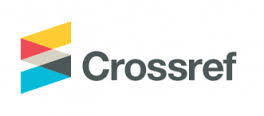Rethinking Education in the Arab Region to Fit the New Era: A Shift in Paradigm
DOI:
https://doi.org/10.59759/educational.v3i4.826Keywords:
Education, Paradigm, Active LearningAbstract
Digital transformation indicates a shift towards continuous learning. We are in an era where a university degree is not enough and we do not stop learning to keep pace with the development and the requirements of work fields, which increases the centrality of the learner in the learning process. The trend towards the digital medium also indicates a decrease in the role of the direct shared environment represented in the classroom, which weakens the ability of teachers to control students in the shared environment and increases the independence of learners. On the other hand, there is a complete need to reconsider the priorities of the educational process, to include elements of emotional intelligence and cooperation that may not receive the appropriate attention in the era of social distancing. All of these transformations indicate a reconsideration of the educational process, from the transmission paradigm to the active learning paradigm. This research addresses different learning paradigms and the needs of our current era, the era of digital technology. It deals with the case of a successful educational system according to the active learning paradigm, to conclude with the modern methods in education and the most important ways to support active learning in the Arab region.
Downloads
References
McDonough, Darlene. Applying Learner-Centered Principles and Strategies: From Face to Face Instruction to a Hybrid Course Learning Format. Journal of Learning in Higher Education. 2012.
McKnight, Katherine, O'Malley, Kimberly, Ruzic, Roxanne, Horsley, Maria Kelly, Franey, John J., Bassett, Katherine. Teaching in a Digital Age: How Educators Use Technology to Improve Student Learning. 2016. Journal of Research on Technology in Education.
Lee, Nicole M. Fake news, phishing, and fraud: a call for research on digital media literacy education beyond the classroom. 2018. Journal of Communication Education. Volume 67.
Siddiq, Fazilat, Gochyyev, Perman, Wilson, Mark. Learning in Digital Networks – ICT literacy: A novel assessment of students' 21st century skills. Computers & Education journal. Volume 109. 2017.
Prior, Daniel D., Mazanov, Jason, Meacheam, David, Heaslip, Graham, Hanson, James. Attitude, digital literacy and self efficacy: Flow-on effects for online learning behavior. 2016.
Kivunja, Charles. Do You Want Your Students to Be Job-Ready with 21st Century Skills? Change Pedagogies: A Pedagogical Paradigm Shift from Vygotskyian Social Constructivism to Critical Thinking, Problem Solving and Siemens’ Digital Connectivism. International Journal of Higher Education. 2014.
Asettea , : Internet usage in Education. Technological Horizon In education vol 1 p27 (1)
Anderson : Using Multimedia in Education , Mc Hill , 2001 , P 89 (2)
De Scool , The Need for Technology Instruction in Teacher Education, Exit Project. Indiana University at south bend P 214
Roob, A.G. : Effective of Using Web in Education With An Experience, University of Salzbura , 2001 P 201
Skinner, B. F. (1953). Science and human behavior. Macmillan.
Wilhelm Blaschke
Wilhelm Blaschke Differentialgeometrie der Kreise und Kugeln, 1929
Vygotsky, L.S. (1929). The problem of the cultural development of the child. The Pedagogical Seminary and Journal of genetic psychology.


